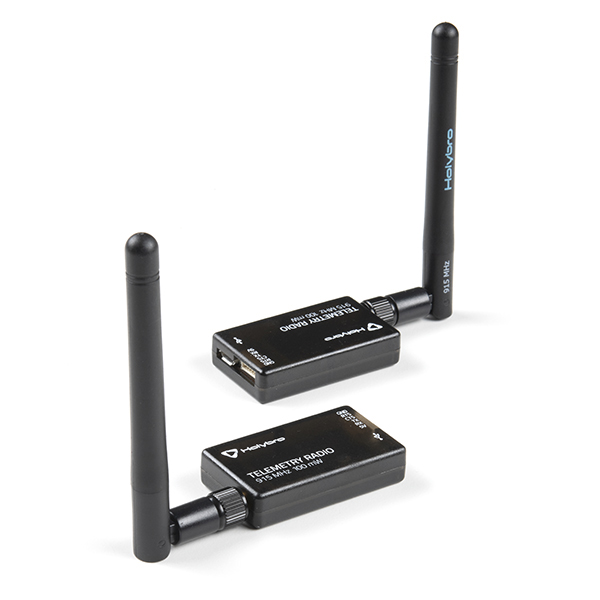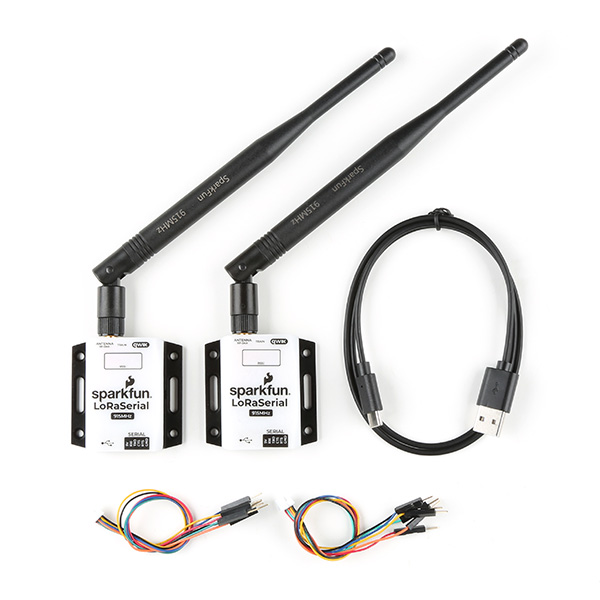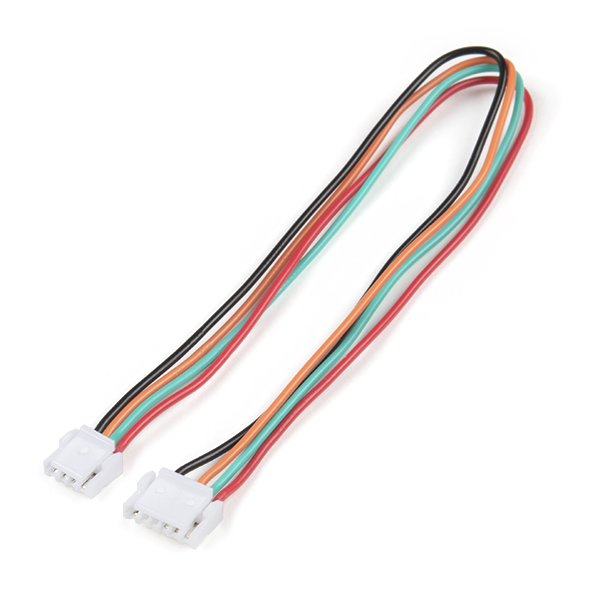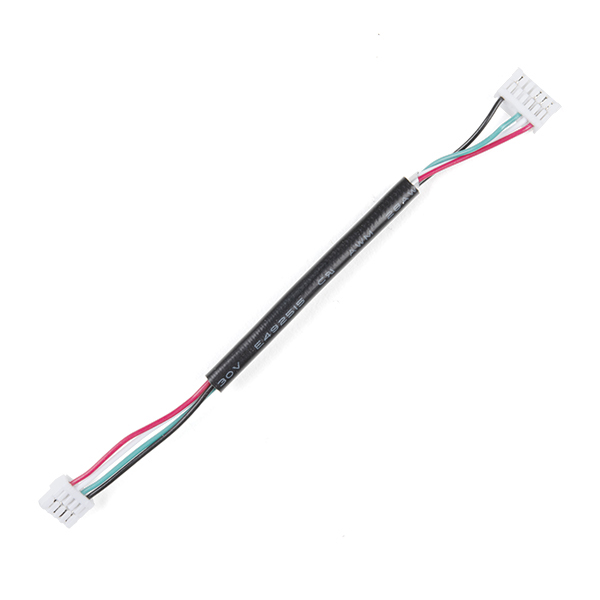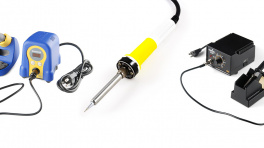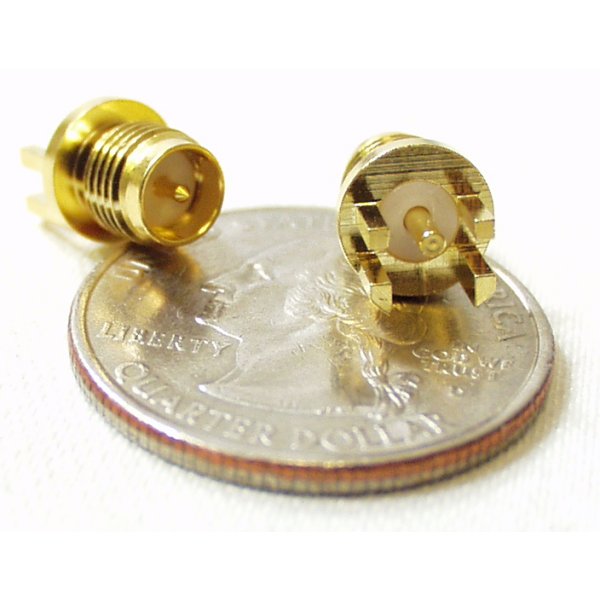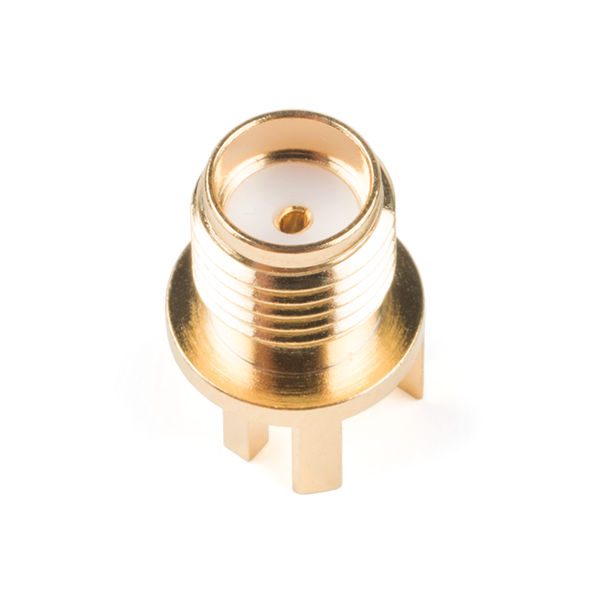Hardware Assembly
USB Programming (UART1)
The USB connection can be utilized for serial communication and configuring the LG290P GNSS module. Users only need to connect their Quad-band GNSS RTK breakout board to a computer, using a USB-C cable.
The Quad-band GNSS RTK breakout board with USB-C cable being attached.
Default Baud Rate
The default baud rate of the UART ports on the LG290P is 460800bps.
GNSS Antenna
In order to receive GNSS signals, users will need to connect a compatible antenna. For the best performance, we recommend users choose an active, multi-band GNSS antenna and utilize a low-loss cable.
Antenna Specifications
- Passive antennas are not recommended for the LG290P GNSS module.
- To mitigate the impact of out-of-band signals, utilize an active antenna whose SAW filter is placed in front of the LNA in the internal framework.
- DO NOT select and antenna with the LNA placed in the front.
- There is no need to inject an external DC voltage into the SMA connector for the GNSS antenna. Power is already provided from the LG290P module for the LNA of an active antenna.
A GNSS antenna attached to the SMA connector on the Quad-band GNSS RTK breakout board.
JST Connector (UART3)
The JST connector on the Quad-band GNSS RTK board, breaks out the UART3 port of the LG290P GNSS module. In most circumstances, users will utilize the JST connector to interface with one of our radios to transmit or receive RTK correction data.
The Telemetry Radio v3 connected to the Quad-band GNSS RTK breakout.
When connecting the Quad-band GNSS RTK breakout board to other products, users should be aware of the pin connections between the devices. The table below, details the pin connections of the locking JST connector on the Quad-band GNSS RTK breakout board.
| Pin Number |
1 (Left Side) |
2 | 3 | 4 |
|---|---|---|---|---|
| Label | VCC | TX3 | RX3 | GND |
| Function |
Voltage Output - Default: 3.3V - 3.3V or 5V |
UART3 - Receive |
UART3 - Transmit |
Ground |
Default Baud Rate
The default baud rate of the UART ports on the LG290P is 460800bps.
Radio Transceivers
We have designed the locking JST connector to be plun-n-play with the following devices and cables. However, for the SiK Telemetry Radio v3, users should modify the VSEL jumper (1) on the back of the board to enable a 5V output on the VCC pin. Below, is a table summarizing the pin connections of the radios.
- While the SiK Telemetry Radio v3 may function with a 3.3V input, their specifications stipulate that a 5V power supply be provided.
| Pin Number |
1 (Left Side) |
2 | 3 | 4 | 5 |
6 (Right) |
|---|---|---|---|---|---|---|
| Label | 5V |
RX - SiK RXI - LoRaSerial |
TX - SiK TXO - LoRaSerial |
CTS | RTS | GND |
| Function |
Voltage Input - SiK: 5V - LoRaSerial: 3.3 to 5V (1) |
UART - Receive | UART - Transmit |
Flow Control Clear-to-Send |
Flow Control Ready-to-Send |
Ground |
Radio Pin Connections
As documented in the LoRaSerial product manual, the pin connections between a host system (i.e. Quad-band GNSS RTK breakout board) and the LoRaSerial radio is outlined in the image below.
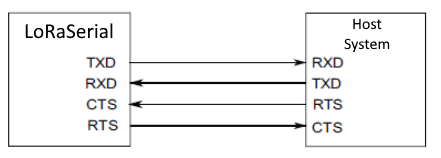
However, the flow control pins (CTS and RTS) are not available on the Quad-band GNSS RTK breakout board. Therefore, when connecting either of the radios, the pin connections should follow the table below:
| Board | RX | TX | GND |
|---|---|---|---|
| Radio | TX | RX | GND |
Radio Transceivers and Cables
Default Baud Rate
The baud rate for these radios are configured by the SERIAL_SPEED parameter. The default configuration is SERIAL_SPEED: 57600bps.
Breakout Pins
The PTH pins on the Quad-band GNSS RTK board are broken out into 0.1"-spaced pins on the outer edges of the board.
New to soldering?
If you have never soldered before or need a quick refresher, check out our How to Solder: Through-Hole Soldering guide.
BlueSMiRF Header (UART2)
The BlueSMiRF header pins on the Quad-band GNSS RTK board, breaks out the UART2 port of the LG290P GNSS module. This pin layout is perfect for connecting a serial-to-UART adapter or a transceiver for serial data, such as the BlueSMiRF Bluetooth™ serial-link.
Default Baud Rate
The default baud rate of the UART ports on the LG290P is 460800bps.
Default Baud Rate
The baud rate for the BlueSMiRF transceiver is configured by the SerialSpeed parameter. The default configuration is SerialSpeed: 115200bps.
Connecting a BlueSMiRF transceiver to a female header that was soldered to the Quad-band GNSS RTK breakout board. This will allow users to pair their board with a mobile device; and log PNT data on the mobile device and/or connect the LG290P to an NTRIP server for RTK corrections (through mobile device's cellular or WiFi connection).
Connecting a UART adapter (Serial Basic) to a male header that was soldered to the Quad-band GNSS RTK breakout board. This will allow users to configure the LG290P, when the USB connection is unavailable.

PPS SMA Connector
SMD pads are provided for the PPS output signal, where an SMA or RP-SMA connector can be soldered. This allows users to easily access the timing signal through a standardized connector, instead of the PPS PTH pin.
Soldering an SMA connector to the SMD pads of the Quad-band GNSS RTK breakout board.



